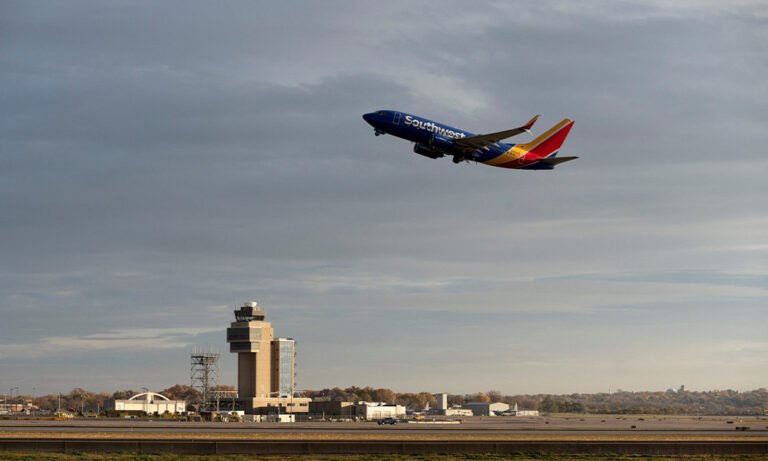US flight cancellations rose sharply on Saturday as the government shutdown continued to affect air traffic across the nation. Airlines canceled 1,460 flights on the second day of the Federal Aviation Administration’s (FAA) order to reduce operations, signaling deeper disruptions ahead.
Charlotte, North Carolina, faced the most severe impact, with 120 flights canceled by midday. Other major airports including Atlanta, Newark, San Francisco, Chicago, and New York also experienced delays due to staffing shortages. The FAA reported that 37 airport towers and other centers were affected, slowing flights in at least 12 cities.
Officials warned that the cancellations could grow as the shutdown stretches on, particularly with the Thanksgiving travel period approaching. Industry experts are concerned that the disruptions will affect not just air travel but also tourism, shipping, and local businesses that rely on airport traffic.
Travelers have voiced frustration over the situation. Emmy Holguin, 36, traveling from Miami to the Dominican Republic, said, “We all travel. We all have somewhere to be. I’m hoping that the government can take care of this.” Others, like Heather Xu, 46, noted the financial and logistical challenges. She said, “Travel is stressful enough. Then you put these disruptions in place and it really makes everything more challenging.”
The FAA’s reductions began with about 4% of flights at 40 targeted airports. These numbers are expected to increase to 10% by Friday. The cuts involve roughly 700 flights from major carriers including American Airlines, Delta Air Lines, Southwest Airlines, and United Airlines. Transportation Secretary Sean Duffy indicated that further reductions could be needed if the shutdown continues and more air traffic controllers are unavailable.
The shutdown has forced about 13,000 air traffic controllers and 50,000 security screeners to work without pay for nearly a month. Many are calling in sick or taking second jobs, further intensifying staffing shortages. Most controllers are working mandatory overtime six days a week. The National Air Traffic Controllers Association (NATCA) highlighted the personal and professional strain these employees face.
Despite the cancellations, the travel system has so far avoided widespread disruption. Short international flights have largely remained on schedule, and many passengers whose flights were canceled were able to rebook quickly. However, rental car companies reported a surge in one-way reservations, and some travelers are canceling trips entirely in response to the uncertainty.
Experts warn that the slowdown in air traffic could have broader economic consequences. Nearly half of all US air freight travels in the cargo holds of passenger planes, meaning that shipping costs could rise and trickle down to consumers. Patrick Penfield, a professor of supply chain practice at Syracuse University, noted that higher shipping costs might push up retail prices.
The tourism sector is also expected to feel the impact. Greg Raiff, CEO of Elevate Aviation Group, said, “This shutdown is going to impact everything from cargo aircraft to people getting to business meetings to tourists being able to travel. It’s going to hit the hotel taxes and city taxes. There’s a cascading effect that results from this thing.”
Airlines and passengers continue to monitor the situation closely. With uncertainty about future cancellations, travelers are advised to check flight statuses regularly and consider contingency plans. The coming days will reveal how deeply the government shutdown affects air travel and the broader US economy.







